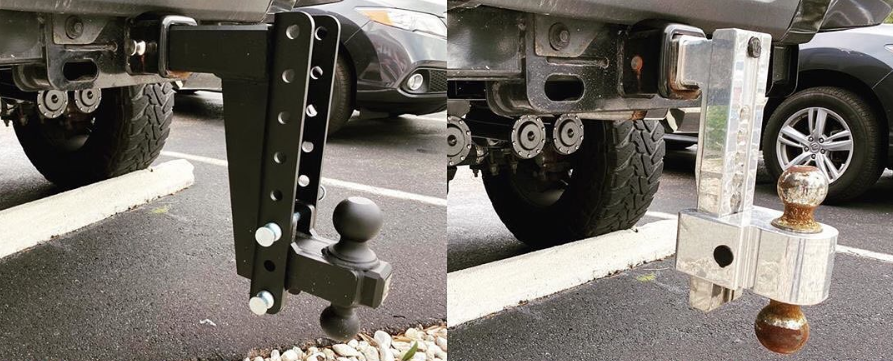Steel Vs. Aluminum Trailer Hitches

Steel and aluminum are two common materials we can see in almost all of our modern objects. From home appliances and electronic equipment to trailer hitches. There is a constant debate over which material is better for highway traveling and the byways of our modern existence.
When we talk about hitches, our vote lies with solid steel trailer hitches, mainly for its reliability and sustainability factor. To give you a fair idea of which material would make the strongest trailer hitch, we are going to compare the two materials to enlighten you on the attributes.
Steel Hitches
Hitches, especially the heavy-duty hitches, work best in steel material than in aluminum. The reason is that pure aluminum is comparatively much weaker than steel. When manufacturers set out to make aluminum hitches, they usually have to combine the material with other elements such as zinc, silicon, tin, copper, and even magnesium to make it lightweight and stronger at the same time.
The highest-rated trailer hitches are generally made from steel because of the rigidity factor. Since steel is quite rigid, it would, therefore, require tremendous forces of pressure to bend it. This is beneficial when you need to use hitches on uneven terrain. Steel’s structural rigidity will retain your hitch's integrity.
At BulletProof Hitches, we tested many types of steel until we found the perfect combination of rigidity and flexibility, meaning we didn't go too rigid where it would break rather than bend if overloaded past it's capacity. We went with a steel that can handle tremendous amounts of pressure, but when overloaded, it will bend rather than break so that there is no risk of the hitch disconnecting from the vehicle while on the road.
Furthermore, the black powder coated finish on all BulletProof Hitches is an added benefit that makes these solid steel trailer hitches resistant to all weather conditions and corrosion.
Aluminum Hitches
The main advantage that people think of when considering an aluminum hitch is how lightweight they are, which can make them easier to maneuver. Although this may be true, it is also a disadvantage because a lightweight hitch also equates to less strength and durability.
At BulletProof Hitches, we have seen countless customers come to us with an aluminum hitch that is completely bent or that has large grooves in the shaft from the pressure of it in the receiver.
Also, the maneuverability is irrelevant when you own a BulletProof Hitch because of it's adjustability. You only have to put it in the receiver once and it will work for any type of trailer you need to tow.
Aluminum hitches tend to have very low towing capacities due to the strength limitations of the metal, so if you plan on towing anything over 10,000 lbs. I would definitely stay away from an aluminum hitch.
Lastly, an attribute that may work toward the aluminum hitches advantage is it's resistance to rust, but when compared with the weather and corrosion resistant black powder coated finish on all BulletProof Hitches, there is really no contest.
I know it may seem like we are biased towards steel hitches, but the facts don't lie and it is pretty evident that a BulletProof Solid Steel Hitch will provide the strength, versatility, and weather/corrosion resistance needed for any type of bumper towing application.
Feel free to reach out to our team here at BulletProof Hitches for more information on our Solid Steel Adjustable Trailer Hitches. 941-251-8110

